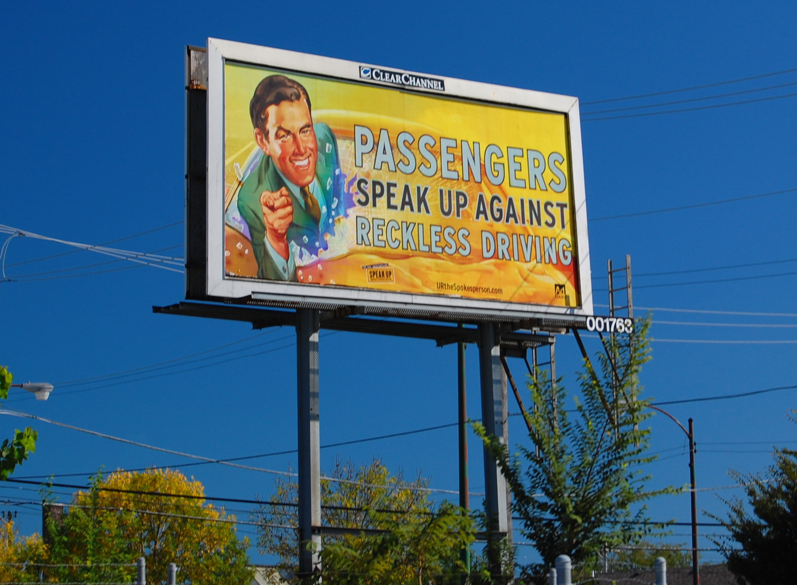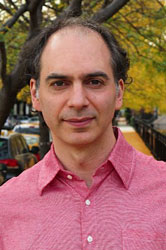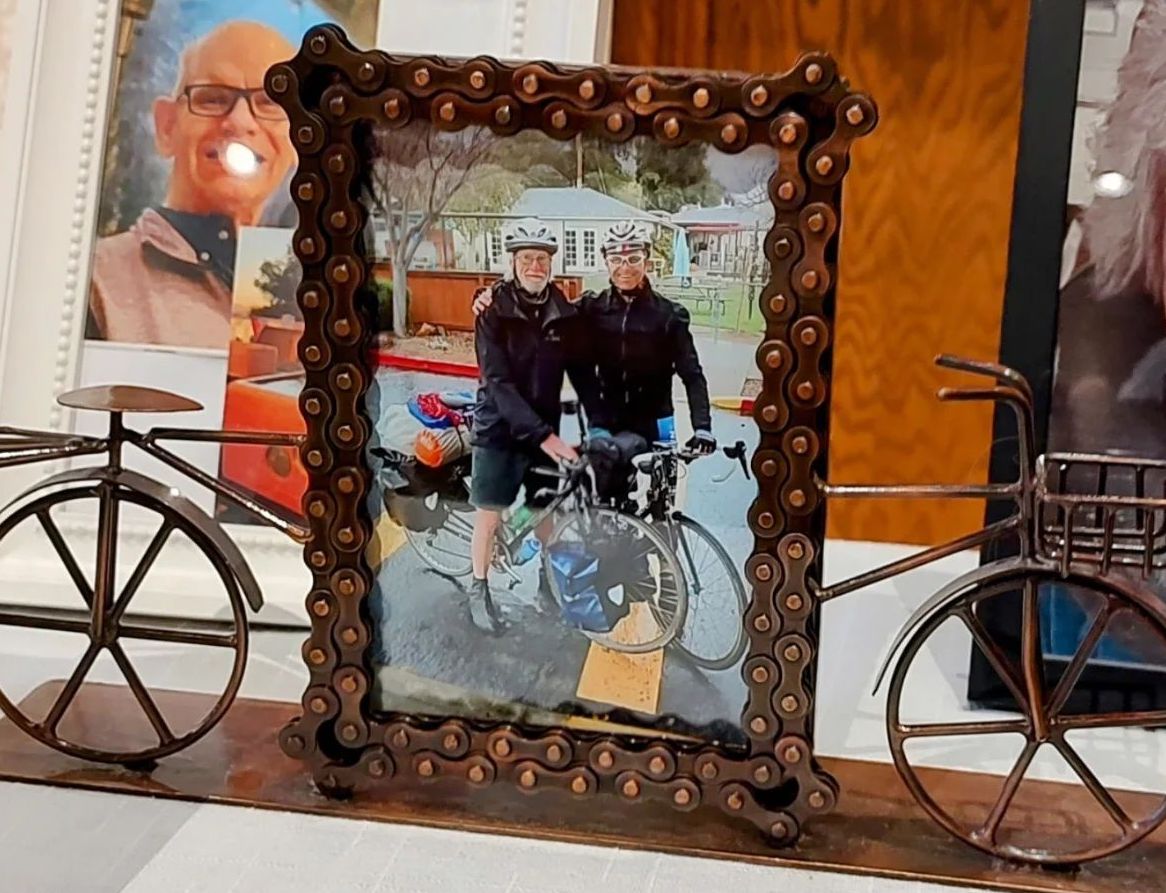[The Chicago Reader publishes a weekly transportation column written by Streetsblog Chicago editor John Greenfield. We syndicate a portion of the column on Streetsblog after it comes out online.]
A heated debate recently erupted on social media about whether reckless driving and reckless biking are morally equivalent. It began, as so many of these wars of words do, with a post on Facebook.
"Wow! Very disappointed in Chicago's cycling commuters today," Erick "Iggy" Ignaczak wrote. He's a burly, bearded, 37-year-old residential painter who occasionally attends events organized via The Chainlink, a social networking site for local cyclists. Formerly a hard-core all-weather bike commuter, nowadays he drives a van to work.
That morning, Ignaczak wrote, he was driving downtown on Milwaukee Avenue—where bikes make up about 40 percent of all the traffic on the street during warmer months—when he had a couple of run-ins with reckless bicyclists. As he drove southeast on Milwaukee just south of Grand, he said, a bunch of fast riders "jumped out of the bike lane" and in front of his van to pass a slower cyclist.
Minutes later he was heading east on Kinzie, stopped at the stop sign at Clinton, and was about to turn south when a couple of the same riders passed him on the right and ran the sign. The cyclists, Ignaczak wrote, "are very lucky be alive. If I wasn't a cyclist commuter in a past life and didn't know what to watch for, they would be dead."
Drivers are legally obligated to make sure the coast is clear before making turns. But Ignaczak is correct that, unlike their counterparts in European cities like Amsterdam and Copenhagen, where the cycling rate is about 17 times higher, Chicago motorists often neglect to check for bikes before making turns or opening doors, which is why "right-hook" and "left-hook" crashes and doorings are common here. It also sounds like the cyclists truly were behaving irresponsibly and would've been at least partly to blame if they'd been struck and seriously injured or killed.
Other Chainlinkers posted to commiserate with Ignaczak. "Those are the jackholes that give us all a bad name," said Sarah Dandelles, who gets around mostly by bike.
"Some people are just dumb jerks, no matter what their means of conveyance," Elliot Edwards wrote.
"Yeah, I just have this romanticized view that cyclists are the good guys," Ignaczak responded.
Caught this scary moment riding in to work this morning. Everyone needs to be more aware of other road users. #bikeCHI #WellsSt pic.twitter.com/fm795Qq51l
— Jack Hall (@halldjack) June 27, 2017
That's when I chimed in. "Well, if people are going to be jerks on the road, I'd much rather they be on bikes than in cars." I noted that while bad behavior from cyclists has never resulted in the death of another road user in our city, virtually all of the 100-plus fatal traffic crashes in Chicago each year involve drivers. While acknowledging that irresponsible cycling is wrong, I argued that it doesn't have anywhere near the potential for harm as dangerous driving. Reckless bike riders are mostly a danger to themselves. Equating reckless driving with reckless cycling is, in short, a fallacy.
That didn't sit well with Ignaczak and many of my fellow bike commuters on the thread. "Feels like you are giving [cyclists] a pass to be said jerks," Ignaczak wrote. "No."
I responded that operating a 3,000-pound vehicle at 30 to 60 mph that can easily kill people should involve more responsibility than operating a 30-pound vehicle that goes 10 to 20 mph and can't. The Dutch see it that way too: in the Netherlands drivers are automatically held liable for collisions with cyclists unless it can be proven the bike rider caused the crash. That sensible policy, along with safer street design and universal bike education, contributes to a bike fatality rate in the Netherlands that's about one-fifth that of the U.S., even though helmet use is rare.
In response to that argument, another commenter linked to an article about a 44-year-old London resident named Kim Briggs who was fatally struck in May as she crossed one of that city's high-traffic Cycle Superhighway routes. In recent years there have been similar high-profile fatal collisions between people on bikes and pedestrians in San Francisco and New York City.
Of course, cases like these are tragic, and if the cyclist acted recklessly, he or she must be held accountable. (I also fully support the ticketing of bike riders who fail to yield to pedestrians in crosswalks, or mindlessly blow red lights, putting themselves and others in danger.) But reports of cyclists fatally striking people, as awful as they are, are the exception that proves the rule. While there are at most a handful of these cases a year in the U.S., more than 2,000 people are seriously injured or killed in driver-involved crashes annually in Chicago alone, and there's a fatality about once every three days. Again, dangerous conduct on a bike is potentially destructive, but the total amount of damage caused by irresponsible cycling is trivial compared to that inflicted by reckless motorists.
Still, the Chainlinkers raised a valid question: Does the fact that bad cycling behavior has less potential for carnage than unsafe driving make it any less immoral?
To dig into the ethics of the matter, I contacted Anthony Laden. He chairs the philosophy department at the University of Illinois at Chicago, is associate director of the Center for Ethics and Education, and for good measure he also happens to ride a bike to work. Laden reframed the question a bit: Are reckless biking and reckless driving unsafe in the same way?
"They both expose oneself and others to harms, and more importantly impose those harms, or a chance of those harms, on others without getting something like their agreement or consent to be put in that situation," Laden says. "It may be that the harms the car driver imposes on others are more severe or at least more likely to involve serious physical injury, but there is certainly a harm imposed on a car driver by a biker when the bicyclist gets into a crash with the car driver in which the cyclist is seriously hurt and the driver is not. Most people find it traumatic to be involved in a situation where another person is seriously injured or killed."
Exposing someone to a harm, or a risk of a harm, he added, might be wrong because of the harms caused, or it might be wrong because of the attitude of contempt it shows for those so exposed. "This will change how we evaluate the wrongs of various kinds of recklessness."
Further complicating this, Laden says, is that sharing the road with others is inherently risky. One agrees to subject oneself to that risk by being on public roads, either in a car or on a bike. "Finally, you might think about sharing the public roads as something we do together, and so ask in what way the reckless driver and cyclist fail in their responsibility to their partners on the road. I take it that once you do that, then you can't just divide between bikers and drivers."
The exchange with Laden resulted in more questions than answers, and he apologized. "Philosophers are much better at making simple things hard than the reverse."
But here's indisputable reality: Reckless driving has far more potential for death and destruction than any other individual travel mode, and as such, the focus of traffic enforcement, infrastructure, and education efforts should be to prevent it. Still, whether you're behind the wheel, in the saddle, or on foot, you have the ability to inflict physical or psychic damage upon others. That's a serious responsibility. So, to driver, cyclist, and pedestrian alike: Don't be a jackhole. There's too much at stake.





